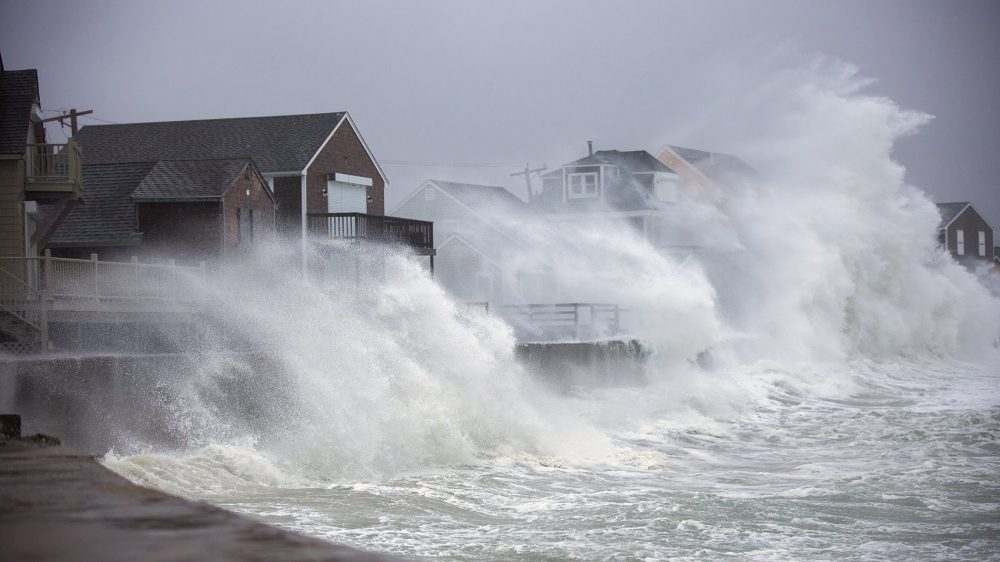‘Weather Whiplash’ And Other Takeaways For Boston and New England From Major Climate Report

On average, the sea level has risen 8 inches along the New England coast since 1950, and that trend is expected to accelerate due to climate change. Scituate, Mass., March 2018. (Jesse Costa/WBUR)
The world needs to get to net-zero carbon emissions by the 2030s to have a chance of avoiding the worst effects of climate change.
That’s the stark message delivered in a sweeping report on the current scientific consensus on climate, released Monday by the UN’s Intergovernmental Panel on Climate Change (IPCC).
The report’s scope is global, but here are five takeaways for folks who live in and around Boston:
Here’s a term you’ll be hearing more often: ‘weather whiplash’
Climate change is causing increased variability in the global water cycle, so regions will see more severe swings between wet and dry. We’re starting to see some of this in New England, like this year’s early-summer heat and abnormally dry weather followed by the wettest July on record. More of that is on the way. And while we’re talking about heat …
You thought June was hot? More heat waves are coming
Heat waves — like the ones that hit Boston in June — are now occurring five times more often across the globe than before 1850. If global warming hits 2 degrees Celsius, heat waves will be 14 times more common, and cities will feel it the most.
